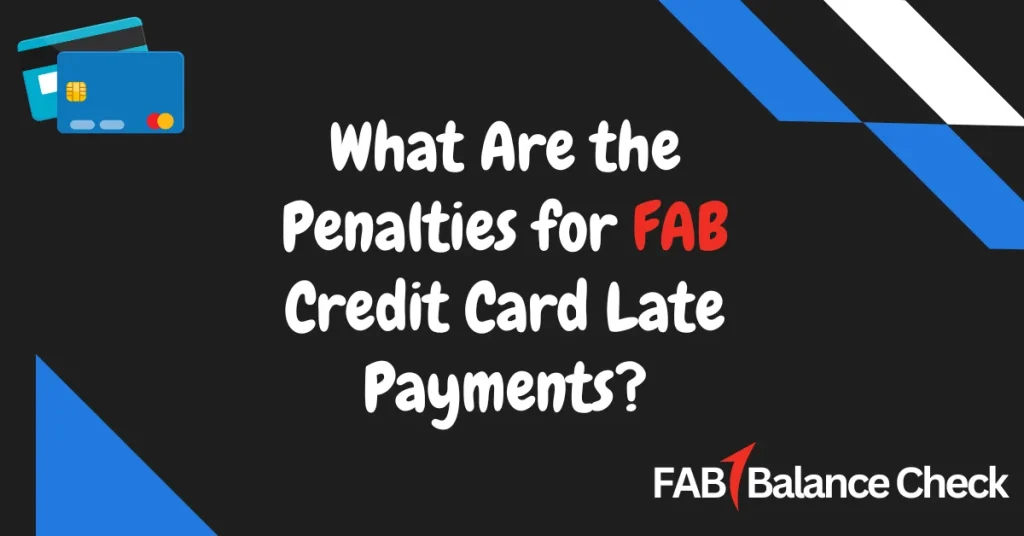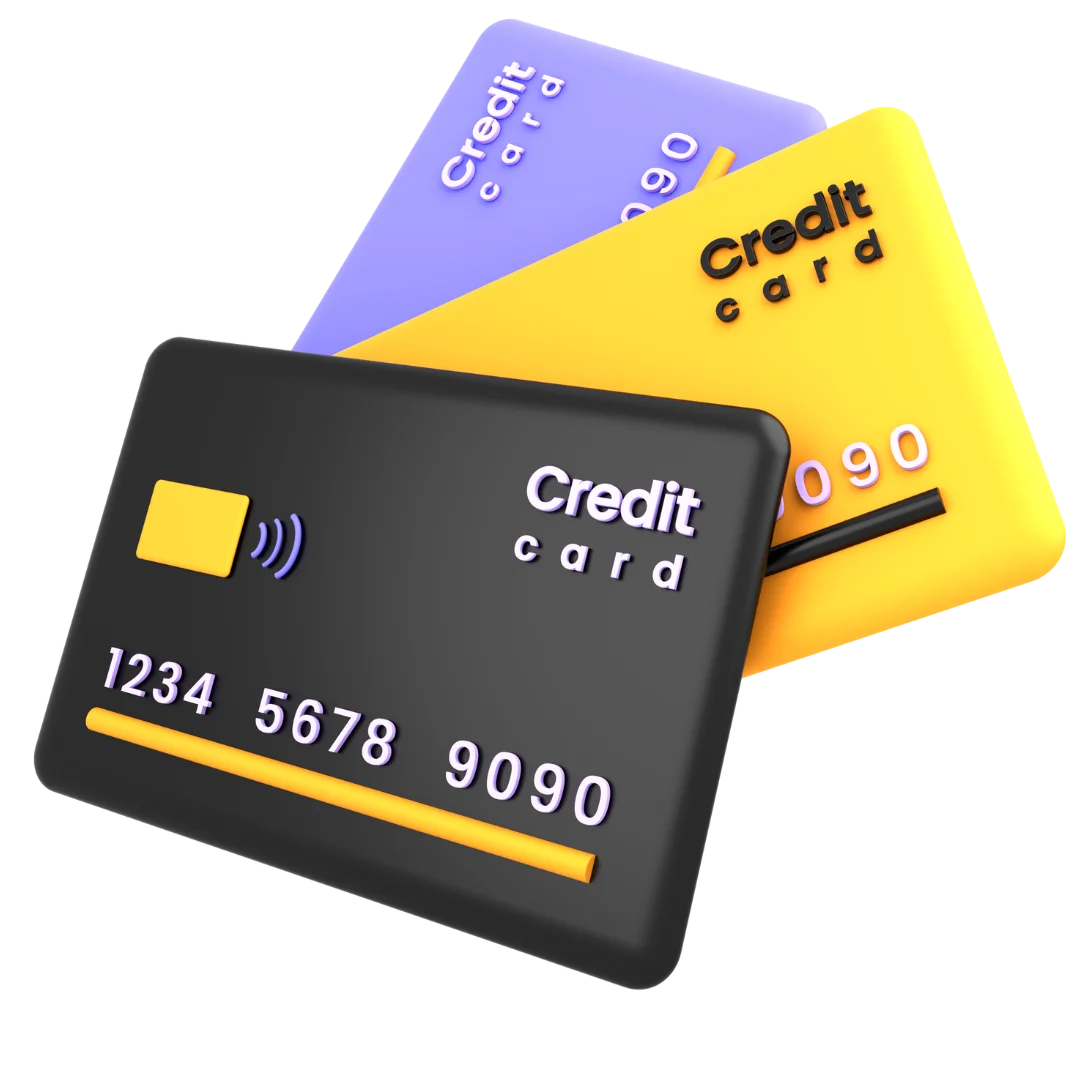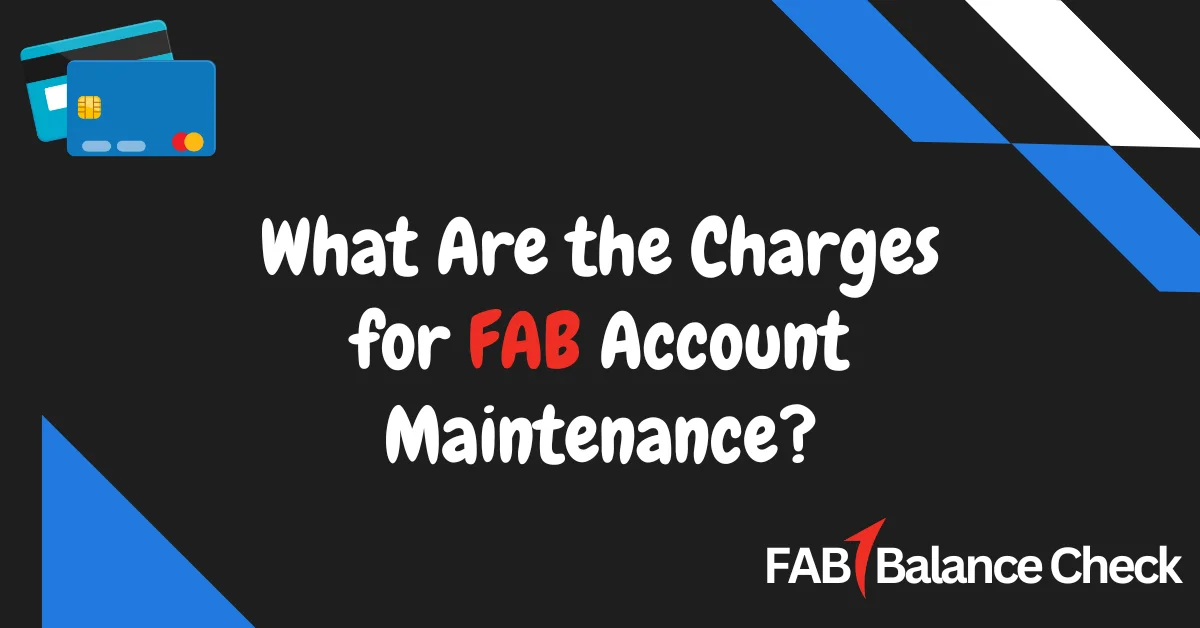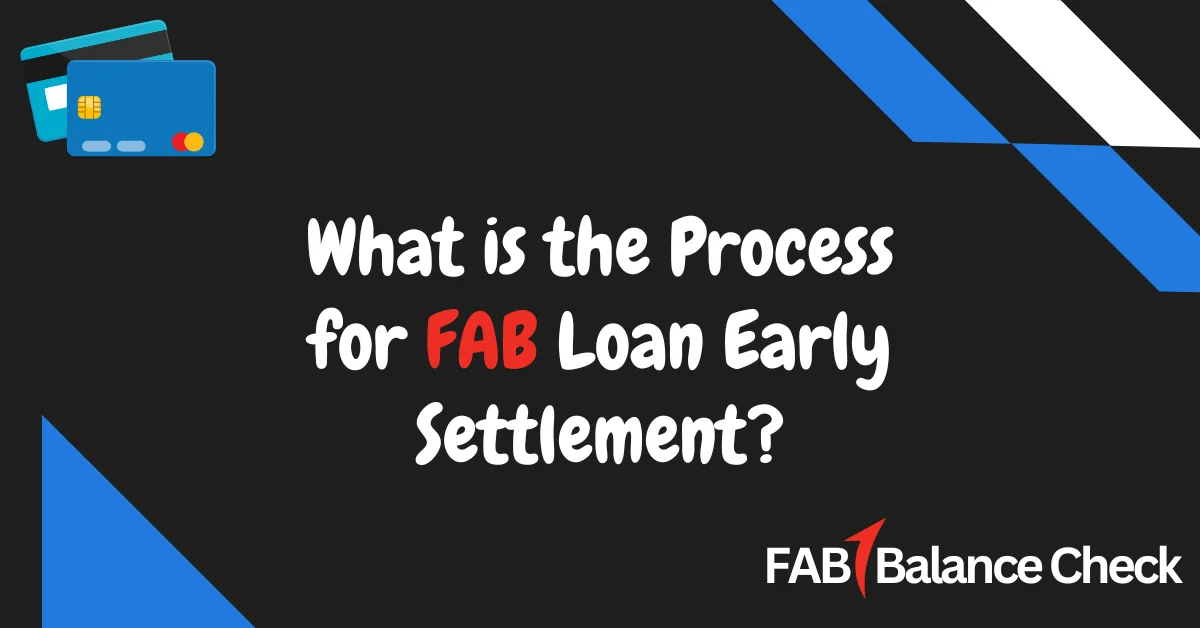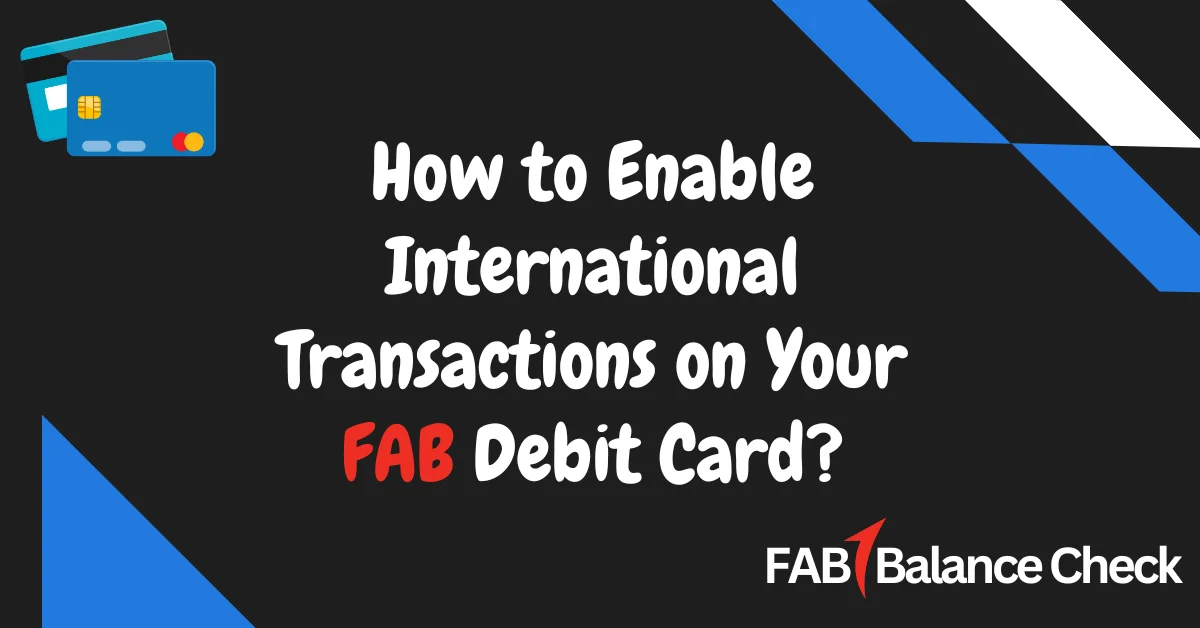Have you ever missed a credit card payment and wondered how it might affect your financial well-being? Missing a payment isn’t just about paying a fee it can spiral into much bigger issues.
If you hold a First Abu Dhabi Bank (FAB) credit card, understanding the penalties for late payments is essential to protecting your financial health and avoiding unnecessary stress. Let’s explore these penalties in detail and learn how you can stay ahead of them.
What Are the Penalties for FAB Credit Card Late Payments? (Quick Answer)
Late payments on FAB credit cards can result in fees of AED 230–241.50, interest rate increases of up to 3.85%, and negative effects on your credit score. Prolonged late payments may lead to account suspension. To avoid these penalties, pay at least the minimum due by the due date and set up automatic payments.
Why Timely Payments Are Crucial?
Late payments on credit cards are more than just an inconvenience—they come with consequences that affect both your wallet and your financial reputation. FAB, like most banks, enforces penalties to encourage timely payments and reduce risk. Here’s what you need to know about the specific penalties you might face for missing payments.
1. Late Payment Fees
The most immediate penalty for missing a FAB credit card payment is a late fee. FAB charges fees ranging between AED 230 to AED 241.50, depending on your card type. Additionally, a 5% value-added tax (VAT) applies to this fee, increasing the total amount. For instance:
- Late Fee: AED 230
- VAT (5%): AED 11.50
- Total Penalty: AED 241.50
These charges can add up if multiple payments are missed, straining your monthly budget.
2. Higher Interest Rates
Late payments may result in an increase in your card’s interest rate. For example, if your standard monthly rate is 2.99%, it might climb to 3.85% following a missed payment. This increase compounds your debt, making repayment significantly harder over time. Higher interest rates mean a larger portion of your payment goes toward interest instead of reducing your principal balance.
3. Impact on Your Credit Score
Credit bureaus track your payment history, and late payments are often reported if they’re over 30 days overdue. A missed payment can lower your credit score, impacting:
- Loan approvals: Difficulty securing future loans.
- Credit card eligibility: Higher rejection rates for new credit applications.
- Interest rates: Higher rates due to perceived risk.
This negative mark can remain on your credit report for several years, potentially limiting your financial opportunities.
4. Account Suspension or Termination
If payments remain overdue for an extended period, FAB may suspend your credit card. This restricts:
- New purchases: Your card is effectively frozen.
- Emergency funds: You lose access to credit in urgent situations.
To reinstate your account, you must clear the overdue amount, including accrued fees and interest. In extreme cases, the bank may terminate your account, leading to further financial restrictions.
5. Increased Minimum Payments
After a late payment, FAB may increase your minimum payment requirement for subsequent billing cycles. Typically, the minimum is 5% of your outstanding balance or AED 100, whichever is higher. However, late payments may lead to:
- Higher percentages: Larger amounts required upfront.
- Budget strain: Difficulty meeting elevated payment demands.
Failing to meet these adjusted minimums could result in additional penalties.
6. Future Credit Challenges
Late payments on your FAB card don’t just affect your current account—they can influence your ability to access new credit. Lenders reviewing your payment history may view missed payments as a sign of financial instability, resulting in:
- Higher rejection rates: Limited access to credit products.
- Less favorable terms: Higher interest rates or lower credit limits on approvals.
How to Avoid Late Payment Penalties?
Staying proactive is the key to avoiding unnecessary penalties. Here are some practical tips:
Set Up Automatic Payments
Automate at least the minimum payment amount to ensure it’s processed before the due date. This eliminates the risk of forgetting.
Use Payment Reminders
Set calendar or phone alerts a few days before your due date. Early reminders give you time to transfer funds or address any issues.
Track Spending
Keep tabs on your credit card usage to avoid surprise bills. This also helps you plan ahead for large purchases or unexpected expenses.
Pay More Than the Minimum
Whenever possible, pay more than the required minimum to reduce your balance faster and lower your overall interest costs.
Review Monthly Statements
Check your credit card statement regularly for errors or unauthorized charges. Report discrepancies to FAB immediately to avoid unnecessary fees.
What to Do If You Miss a Payment?
Missed a payment? Don’t panic. Here’s how to recover:
Pay Immediately
Settle the overdue amount as soon as possible to limit fees and prevent further damage to your credit score.
Contact FAB
Reach out to FAB’s customer service team. They may offer solutions like:
- Temporary relief.
- Payment extensions.
- Installment plans.
Plan for Future Payments
After resolving the missed payment, implement strategies to prevent recurrence, such as automating payments or setting multiple reminders.
Final Thoughts
FAB credit card late payment penalties are costly and far-reaching, affecting your financial health in multiple ways. From fees and interest rate hikes to credit score damage and account suspension, these consequences underscore the importance of timely payments.
By staying vigilant, setting up automated systems, and addressing any missed payments quickly, you can maintain control of your finances and avoid unnecessary stress.

I’m Yasmin Al Baloushi, a UAE-based writer passionate about simplifying financial services. Through my site, I provide clear and accurate guidance on FAB Balance Check methods to help users manage their finances with ease and confidence.
